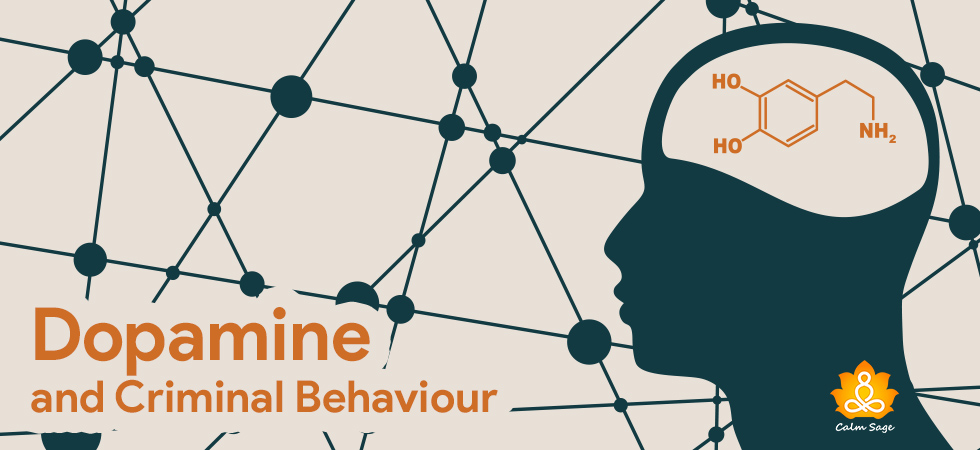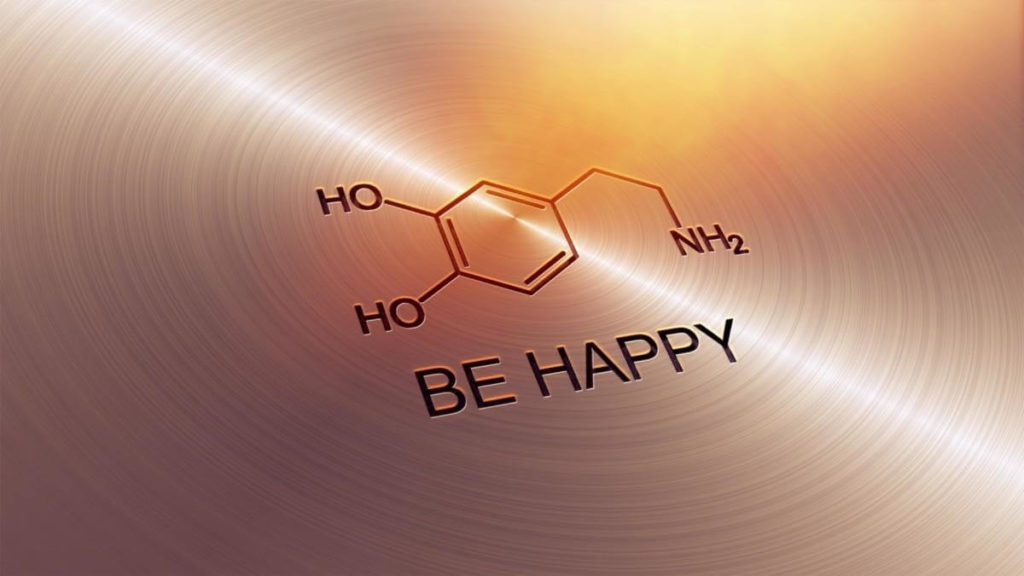Dopamine And Criminal Behaviour: Exploring The Link Between The Two

Crime rates are like a steeping mountain, the number always keeps on increasing. The prevalence of crime and increase in criminal behavior is a matter of concern not only for a particular region and its people but also for field experts like criminologists, forensic psychologists, criminal psychologists, and neuroscientists. These experts are constantly working towards finding the causal reasons underlying criminal behavior. Surprisingly, it has been found that there is a link between one of the happiness hormones and criminal behavior. There is a link between dopamine and crime! Keep reading to unfold the link between the two.
Dopamine: Understanding the Hormone
Dopamine is popularly known as one of the four happiness hormones. It is a brain hormone that is linked with pleasure, motivation, and reward. This hormone also helps in regulating movement and emotional responses. Interestingly, dopamine also acts as a gatekeeper, it checks on which impulses and thoughts become conscious and can be acted upon. According to an article published in the Journal of Computational Neurology (2005), dopamine is the driving force behind the generation of ideas and creative drive.
You might be wondering here how a hormone so good can be linked with criminal behavior! Well, while this hormone leads to happiness if secreted in optimal amounts, the abnormal secretion may impact behavior adversely. Having too much dopamine can lead to a state of euphoria, aggression, and even psychosis. On the other end, low dopamine levels are likely to make a person more prone to addiction.
Let us now explore the link between the happiness hormone dopamine and criminal behavior.

Dopamine And Criminal Behaviour: Unfolding the Link
Our behavioral patterns are largely guided by our neurochemicals. While there have been attempts to understand the link between positive behaviors and the role of neurochemicals, researchers have also tried to identify neurochemicals that are linked with criminal behavior and tendencies. Surprisingly, one of the neurotransmitters that are found to be linked with criminal behavior is dopamine.
In our last write up we covered the link between dopamine and aggression (read more about it here), which is well established by previous studies. Aggression being a primer for many criminal activities, it will be rational to say here that high levels of dopamine are linked with criminal behavior.
Chatoi and colleagues also found that a hyperfunctioning dopaminergic system is likely to make a person exhibit violent and impulsive behavior. This link between dopamine and human aggression has been confirmed by various other studies too. In conclusion, dopamine and criminal tendencies are linked with each other.
The first-ever study that analyzed the role of dopamine transporter (DAT-1) and Dopamine-2 receptor in antisocial behavior there is a link between dopamine and criminals, especially, murder convicts (Qadeer et. al. 2017).
Another study by Morley and Hall (2003) found a relationship between genes in the dopaminergic pathway, impulsivity, and violent offenders.
Obviously, from these findings, it seems plausible that there is a link between dopamine and criminal behavior (or antisocial behavior)
Special Section: Kids, Dopamine, and Delinquency
While doing my research for this write up I came across an interesting and yet concerning finding. These findings have found that kids, especially adolescents, are more prone to delinquency because of unusual dopamine activity in their bodies. Ingo Vernaleken of Aachen University, Germany, did his study on 18 healthy adults in their mid-twenties who were asked to play a computer game and their certain behavioral patterns were analyzed. It was seen that subjects with low dopaminergic capacity were distracted by cheating behavior and showed more aggression than their counterparts.
Another study by Zai et. al. 2012, showed that children with reduced dopamine functioning were more aggressive, they displayed bullying, cruelty, and anger expressions more often.
Supporting the link between dopamine level and juvenile delinquency is another study by Buitelaar (2003). He found that when juvenile delinquents were given dopamine antagonists they reported less aggressive and violent behaviours.
These findings do point to an association between the happiness hormone dopamine and juvenile delinquency. Thus, it is suggested that we teach our kids to maintain an optimal amount of dopamine in their body but neither engage too much in dopamine boosting activities nor restricting oneself of the same. The best way to make it happen is by practicing dopamine fasting from time to time so that too much is secreted and too little of it is maintained.
View this post on Instagram
Read more about dopamine fasting here.
Final Remarks
Our body needs all forms of neurochemicals to work at its best. However, excess or scarcity of these chemicals disturbs the functioning of our brain, body, and even emotions! Dopamine and criminal behaviours are no exception to it! Therefore, it is suggested that you don’t go for a high dose of dopamine in your body as it might bring more than just happiness in your life, some serious trouble! So stay informed and make sure your lifestyle results in the balance of all the neurochemicals for a better now and future.
Thank you for reading!




















